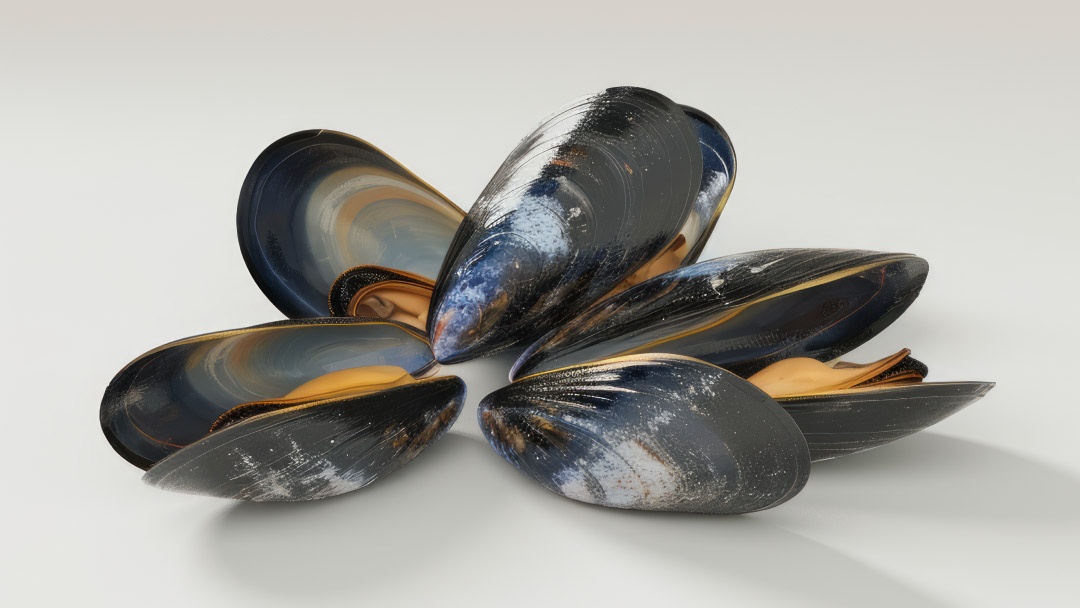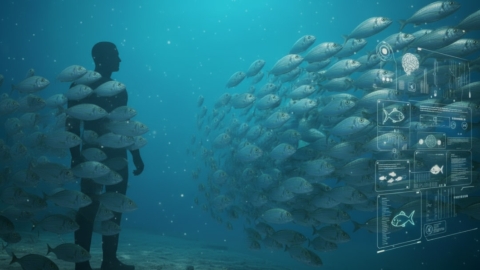
As extreme marine heatwaves become more frequent across southern Europe, innovative aquaculture strategies are urgently needed to safeguard the future of mussel farming. Approaches such as cultivating mussels at greater depths or implementing Integrated Multi-Trophic Aquaculture (IMTA) systems are among the potential solutions currently under investigation.
A recent study led by researchers at the University of Salento and carried out in the Mar Grande of Taranto, in the Ionian Sea, has shown that while deeper farming can help mitigate thermal stress, it is not sufficient on its own to ensure commercial viability during prolonged episodes of high temperature.
The research team assessed the growth, survival, and product quality of Mytilus galloprovincialis mussels farmed under varying conditions: near to and distant from an IMTA system involving gilthead sea bream (Sparus aurata) and other bioremediators, and at two depth levels—0–4 metres and 8–12 metres. The objective was to understand how these variables influence mussel resilience throughout a full production cycle.
Their findings revealed that depth was the most significant factor affecting growth and survival, with mussels reared at greater depths performing better overall than those grown nearer the surface. However, during the peak of summer 2023, surface water temperatures reached 31.01 °C—levels that severely limited growth across all experimental groups, including those at depth. None of the batches reached the condition index required for commercial harvest.
Moreover, although proximity to the aquaculture facility did not significantly affect growth, mussels farmed farther from the IMTA system achieved better condition index scores in spring, likely due to reduced competition for phytoplankton and the seasonal blooms typical of the area.
Despite the environmental pressures, the study confirmed that the mussels maintained high nutritional quality and food safety. The fatty acid profile remained beneficial for human health, and contaminants such as polycyclic aromatic hydrocarbons (PAHs) and polychlorinated biphenyls (PCBs) remained well below EU safety thresholds. Microbiological analysis also confirmed the absence of pathogens such as Salmonella and Pseudomonas spp., and acceptable levels of Escherichia coli.
The authors stress that “considering that extreme temperatures will likely intensify in the future, further efforts are needed to design new farming strategies, such as an IMTA system in an offshore wind farm, to overcome this challenge.”
This research not only highlights the limitations of current mitigation techniques but also underscores the need for structural innovation in aquaculture—particularly in regions like Taranto, where mussel farming represents both a cultural tradition and an economic cornerstone.
With climate change accelerating, the development of climate-resilient, offshore, and multi-trophic farming systems may become essential to securing a sustainable future for Mediterranean shellfish production.
Reference:
Claudio Calabrese, Daniele Arduini, Giuseppe Portacci, Elisa Quarta, Adriana Giangrande, Maria Immacolata Acquaviva, Francesca Biandolino, Santina Giandomenico, Ermelinda Prato, Loredana Stabili. Farming strategy under climate change: Growth performances and quality of Mytilus galloprovincialis in an Integrated Multi-Trophic Aquaculture system (North-West Mediterranean Sea). Marine Pollution Bulletin, Volume 220, 2025, 118377, ISSN 0025-326X https://doi.org/10.1016/j.marpolbul.2025.118377


